Magazine
What Is Sulfate-Free Shampoo? What To Know
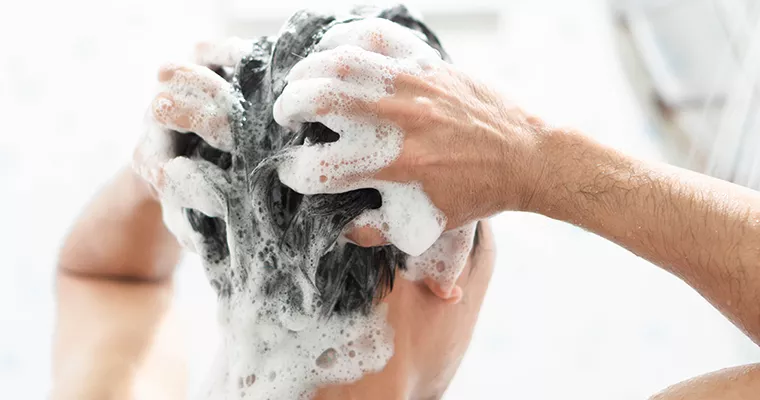
If you have ever purchased a cleaning item, whether it was for your body or your kitchen sink, you’ve probably heard the word “sulfate.” The term is typically used to describe the presence of any synthetic sulfate-based chemical such as salts, acid derivatives, and peroxides in a product.
Sulfates act as cleansing agents by stripping away oils and dirt from surfaces. They are also responsible for causing products to lather and foam.
Shampoos are famous for using sulfates as an ingredient. Though generally regarded as safe in most instances, sulfates have been known to cause damage and irritation on certain hair and skin types.
Today, Particle will be explaining how sulfates function in shampoo, the dangers they pose, and what sulfate-free options are available to you.
Sulfates In Shampoo
Sulfates are used in shampoo strip dirt and oil from the hair. They offer deep cleaning to the hair by creating a lather effect to remove the unwanted substances.
Two types of sulfate consistently found in shampoo are sodium lauryl sulfate and sodium laureth sulfate. Sodium lauryl sulfate and ammonium laureth sulfates are mainly used in shampoos as foaming agents.
While it can be satisfying to see your hair lather as you scrub, and while — safe in moderation — sulfates can cleanse the hair effectively, these chemicals have the potential to do more harm than good.
As it strips the hair, sulfates may remove necessary moisture, proteins, and oils, leaving your hair dry. Sulfates may also be too strong for sensitive skin or hair, dry or fine hair or those with sulfate chemicals allergies. Sulfate surfactants can cause scalp irritation and skin irritation for those who have sensitive scalps.
Experts recommend that men with skin conditions like rosacea and eczema avoid sulfates in their shampoo. The chemicals can irritate areas of skin like the scalp, face, and back that are already dealing with pre-existing symptoms.
Those with naturally sensitive skin should also consider avoiding these lathering agents. The chemicals may be too strong and may cause damage. Similarly, those with dry or fine hair should be cautious of how the strength of sulfates may influence their fragile locks. Sulfates tend to strip the hair of oils, which already naturally dry hair may not afford.
Sulfates also can alter the shade and texture of your hair in a way that you may not want. If your hair has been recently colored, sulfate shampoo may strip out the color. Sulfate shampoo may also create a negative electrical charge that causes frizz, especially for those with frizz-prone hair.
As for allergic reactions, signs of having sulfate sensitivities include redness, rashing, itchiness, inflammation, and hives on the scalp and face. Any of these bodily responses may be signs that your sulfate shampoo should be left on the shelf. In extreme circumstances with more severe symptoms, be sure to seek immediate medical attention.
Sulfate Free Shampoo
Sulfate-free shampoo is any shampoo that is made to still clean and lather, simply without sulfates. As we have previously established, while sulfate shampoo is safe and effective for many people in small doses, it is not the right option for everyone.
While sulfate-free shampoo is milder and, therefore, the safer option for finer, dryer, more sensitive hair, there are aspects of using this shampoo that can benefit everyone.
Benefits of Sulfate Free Shampoo
One of the top benefits of using sulfate-free shampoo is avoiding stripping your hair’s natural oils. While there are many hair care products and personal care products, not all are sulfate, silicone, and paraben-free.
A shampoo with sulfates is still considered a cleanser and can be great for stripping the hair of dirt and buildup but may accidentally strip necessary natural oils in the process. Sulfate-free shampoo is formulated to cleanse and moisturize your hair just as well as sulfate shampoo but minus the risk of removing natural oils or irritating your scalp.
A similar benefit to keeping the hair’s necessary oils where they belong, is that sulfate-free shampoo also maintains your hair’s moisture. While deep cleaning, sulfates often strip moisture from the hair. Sulfate-free shampoo can help treat your hair without losing any moisture.
On the topic of damaged hair, sulfate-free shampoo may actually improve hair recovery from the previous injury. Shampoo containing sulfates is strong and may not be the right option for fragile hair. Sulfate-free shampoo is milder and can offer your hair the gentle cleanse it needs as it repairs itself.
Since the sulfate-free shampoo is mild, another benefit is that it is a safer option for colored hair. With fewer chemicals in the product, it is fine to wash your recently colored hair regularly with sulfate-free shampoo and not have to worry about losing its shade or shine.
Other Ingredients To Avoid
Sulfates like sodium lauryl sulfate and sodium laureth sulfate are not the only ingredients to be cautious of applying to your hair. Here are some of the main types of ingredients that you may want to avoid.
Sodium Chloride: Sodium chloride is a salt typically used for thickening your shampoo. When used often, it may cause your scalp to itch and become dry or flaky, potentially leading to hair loss.
Propylene Glycol: Propylene glycol is used in shampoos as a thickening agent. Using hair products containing this ingredient may leave your hair broken after stripping it of its moisture.
Parabens: Parabens are artificial chemicals used in shampoos to keep them from expiring for long periods, sometimes as long as two years. It is suspected that parabens can cause eczema flare-ups, itchy scalp, and disrupt hormone function, triggering hair loss.
Chemical Fragrances: Shampoos can contain both natural and synthetic fragrances. Fragrances produced from chemicals can alter hair’s texture, strip its natural oils, and cause tangles and dryness.
Alcohol: Similarly to sulfates, alcohol is an extremely common ingredient in cleaning products. Though you need not avoid all alcohol shampoos, especially those that use beneficial alcohols like cetyl as ingredients, you should avoid shampoos containing harmful forms of alcohol like propanol, because it tends to dry out hair.
Diethanolamine and Triethanolamine: Diethanolamine and triethanolamine are used in shampoos to lower the surface tension between oil-soluble and water-soluble ingredients, permitting them to blend better. These synthetic ingredients may damage your hair’s keratin and irritate your scalp.
What To Look For Instead
While there are ingredients like sulfates to be wary of when selecting the right shampoo for your hair, there are ingredients that you can look for instead — ingredients that will not only prevent damage but support your hair.
By being aware of some of these beneficial ingredients and what they are capable of helping with, you may have an easier time choosing your sulfate-free shampoo.
Capixyl: Capixyl is a complex of peptide and red clover extract often used to treat hair loss. When used as an ingredient in hair products, it can invigorate hair growth, providing you with a thicker head of hair.
Redensyl: Redensyl is a serum for hair growth and restoration. The ingredient is used in shampoo to target hair follicles, stimulate hair growth, and make your hair fuller.
Ginseng: Ginseng is a medicinal product extracted from the root of plants in the genus Panax. This ingredient contains antioxidants that reduce discomfort and can increase blood circulation.
Biotin: Biotin is one of the B vitamins. When used as a shampoo, it is an essential nutrient that can improve your hair’s overall health by stimulating keratin production and increasing follicle growth.
Green Tea Extract: Green tea extract is exactly what it sounds like, an ingredient extracted by green tea. When used in shampoo, it supports healthy hair growth and regrowth by stimulating the hair follicles and protecting hair cells from damage.
As you go about picking your shampoo, if you plan to base your selection on organic ingredients, we hope to help guide you further by explaining how the labeling of organic products works.
Products with ingredients that are 95 percent organic will have the USDA organic certification on their label. Products with at least 70 percent of their ingredients being organic — but not as many as 95 percent — are permitted to have “made with organic ingredients” written on their products. If a product has less than 70 percent organic ingredients, it will be required to list its ingredients on the label.
Our Recommendation
Now that you know what to avoid and seek out when selecting a safe shampoo for consistent use on your hair, we suggest trying the Particle Hair Shampoo.
Our product contains powerful ingredients that include capixyl, ginseng, green tea extract, and biotin that together will strengthen the hair and its roots and stimulate the scalp for increased circulation, triggering hair growth.
While Particle Hair Shampoo has benefits for everyone and every hair type, including increasing thickness and volume, protecting your scalp, and being SLS, salt, and paraben-free, our product is especially good for men suffering from thinning hair to advanced hair loss.
Check out our reviews here.
Conclusion
While delving into the complexity of shampoo can be just that: complex, it can also be beneficial. The important thing to note is that you have options.
Whether you decide that shampoo with or without sulfate is best for you, you now know the benefits of both and can make a well-informed decision.
Sources:
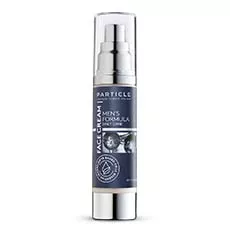
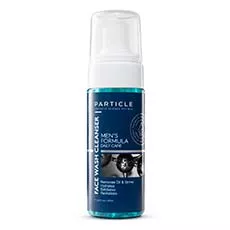
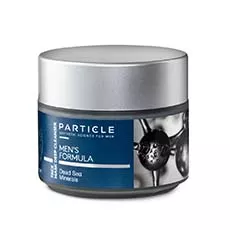
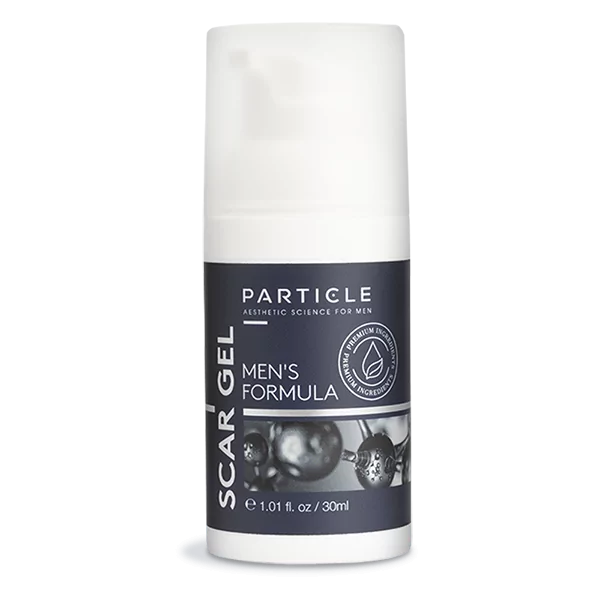
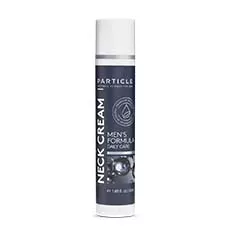
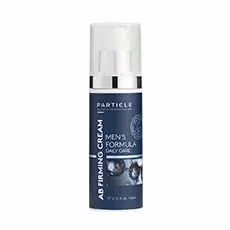
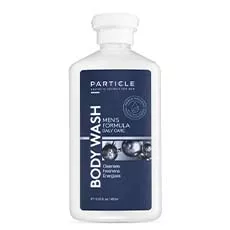
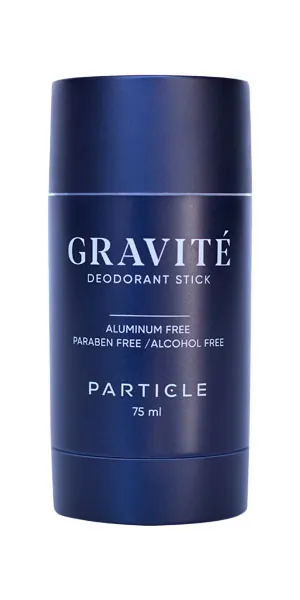
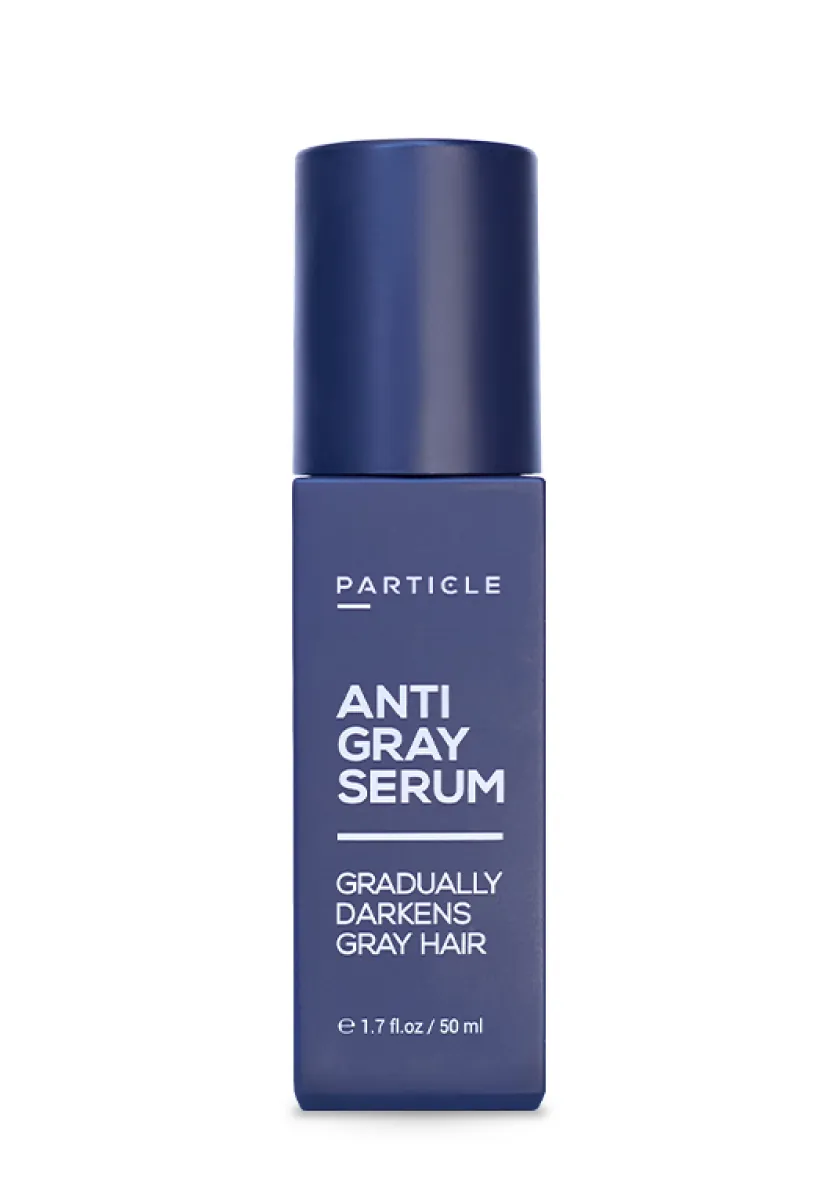
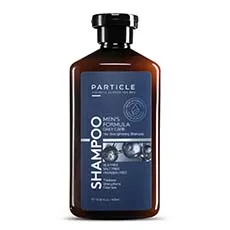
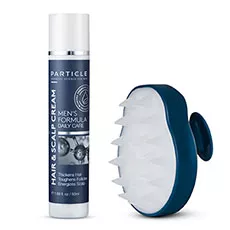
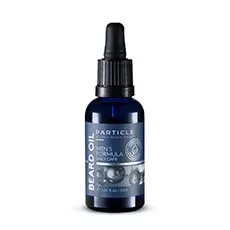
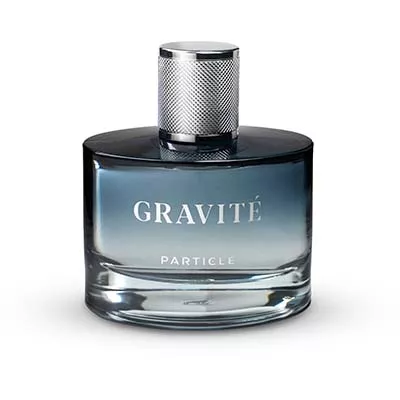

 ca
ca















